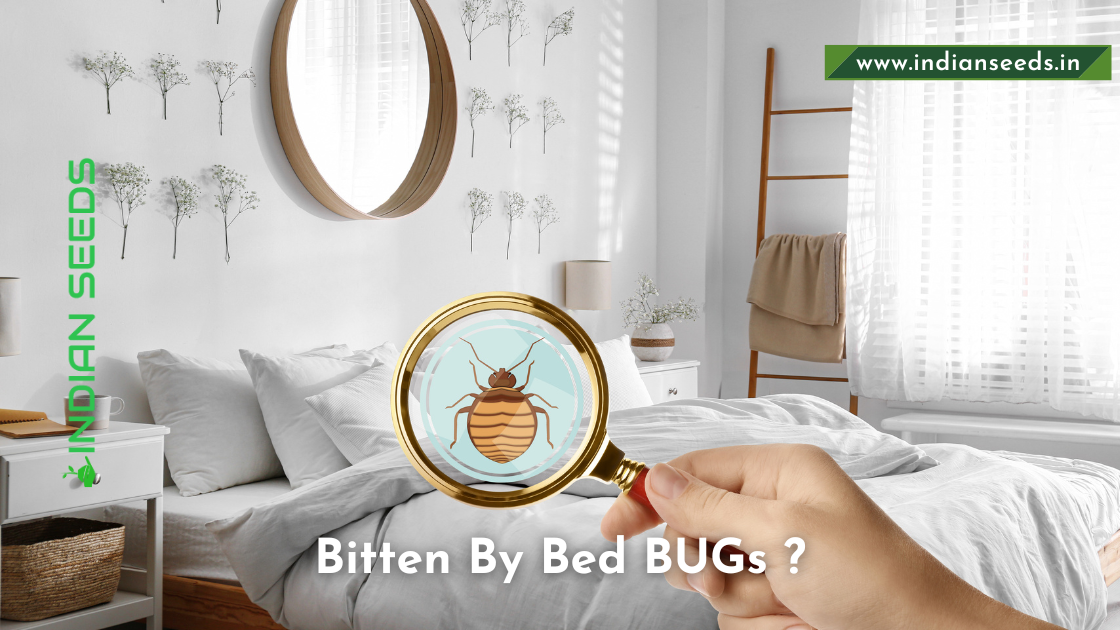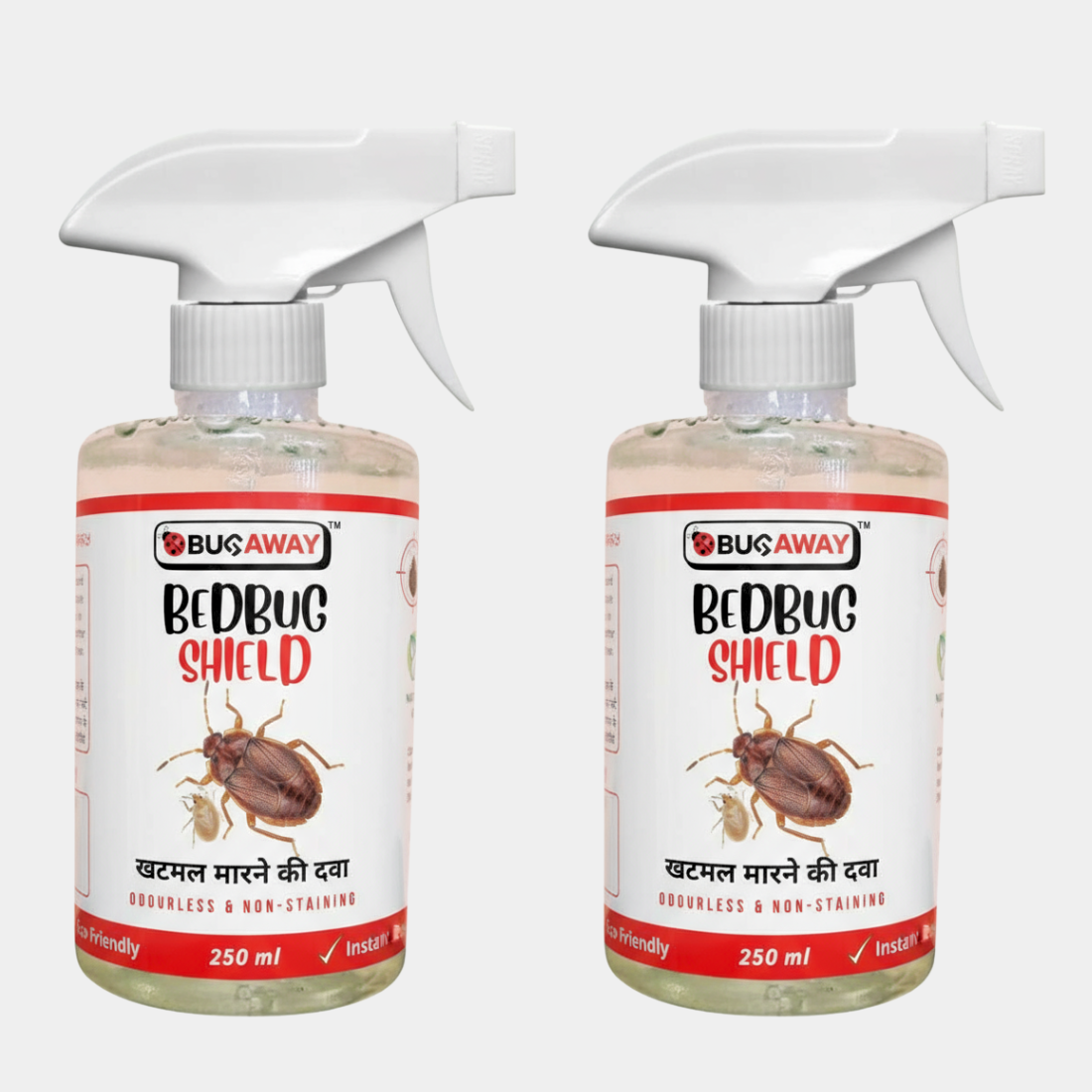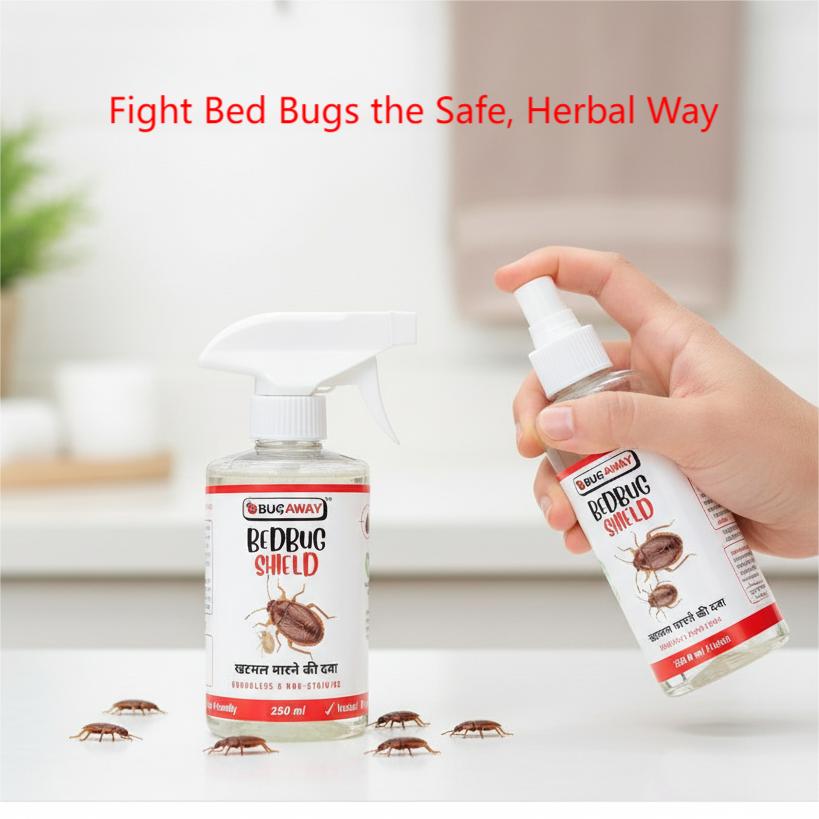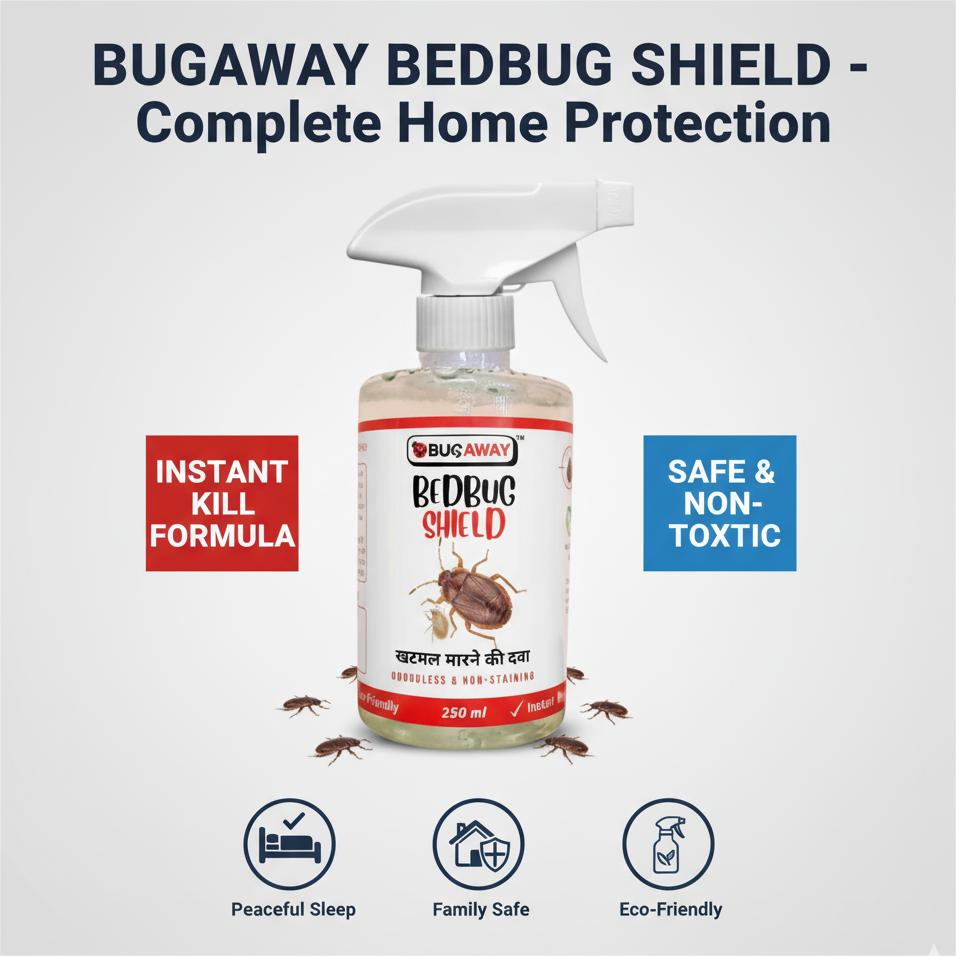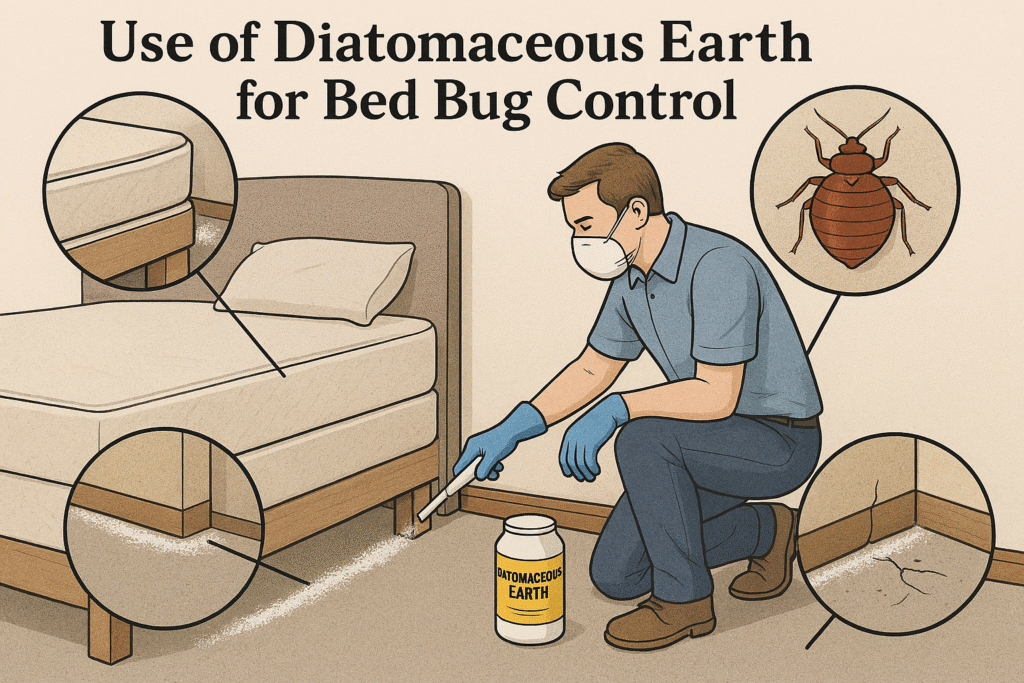If you’ve ever been bitten by bed bugs, you know how uncomfortable and itchy the bites can be. Bed bugs are small, reddish-brown insects that feed on human blood while we sleep, and their bites can cause redness, swelling, and intense itching. In this blog post, we’ll explore what to do when bitten by bed bugs, including tips for relieving symptoms and preventing further infestation. Whether you’ve just discovered bed bug bites or you’re dealing with a full-blown infestation, this guide will help you take control of the situation and find relief from the discomfort caused by these pesky pests.
Know about Bed Bugs
What are Bed Bugs?
Bedbugs are small, reddish-brown insects that feed on the blood of humans and other warm-blooded animals. They are usually found in beds, furniture, and other areas where people sleep or rest.
Bedbugs are a common pest problem, particularly in densely populated areas, and their bites can cause itching, redness, and other allergic reactions in some people. Bedbugs are notoriously difficult to eradicate, as they can hide in small cracks and crevices and can survive for long periods without feeding. Infestations often require professional pest control treatments to completely eliminate the problem.
Why Do Bed Bugs bites?
Bedbugs bite humans and other warm-blooded animals to feed on their blood. Bedbugs are attracted to the carbon dioxide and warmth that humans and animals emit, which signals to them that a potential meal is nearby. Bedbugs are typically nocturnal and feed on their hosts while they are sleeping or resting, which is why they are commonly found in beds, mattresses, and other furniture.
Bedbug bites are usually painless at first, but they can cause itching, redness, and swelling. Some people may develop an allergic reaction to bedbug bites, which can cause severe itching, hives, and other symptoms. However, bedbugs do not transmit diseases to humans, so their bites are not considered a significant health risk.

Bhulife BedBug Eliminator | Khatmal Maar Spray Eco Friendly | No Chemical | No Smell
- Its Eco-Friendly, No Smell and give Instant Result
- Safe for Humans, Pets, Plants, etc.
- Say No to diseases and have a good night sleep
- Stops Bed Bug infestation
- Also Effective for Sucking Ticks and Fleas for Cattle and Pets
- Each Spray Bottle Net Content: 250ML
It’s important to note that not everyone reacts to bedbug bites in the same way, and some people may not experience any symptoms at all. Additionally, bedbugs can go for long periods without feeding, so an infestation may not be immediately apparent. If you suspect that you have a bedbug infestation in your home, it’s important to take action to eliminate the problem and prevent further bites.
Medicine when bitten by Bed Bugs?
There is no specific medication for treating bedbug bites, as the bites themselves do not pose a significant health risk. However, there are several over-the-counter medications and treatments that can help alleviate the symptoms of bedbug bites, such as:
Antihistamines: These medications can help reduce itching and swelling caused by bedbug bites. Common over-the-counter antihistamines include Benadryl, Claritin, and Zyrtec.
Topical creams: Over-the-counter creams containing hydrocortisone or pramoxine can help relieve itching and redness caused by bedbug bites.
Oral pain relievers: Over-the-counter pain relievers, such as acetaminophen or ibuprofen, can help reduce pain and discomfort caused by bedbug bites.
It’s important to note that if you experience a severe allergic reaction to bedbug bites or if the bites become infected, you should seek medical attention immediately. Your healthcare provider may prescribe medication to treat the allergic reaction or infection. Additionally, if you suspect that you have a bedbug infestation in your home, you may need to consult a pest control professional for treatment.

Home Remedy when bitten by Bed Bugs
If you’ve been bitten by bedbugs, there are a few steps you can take to alleviate the symptoms and prevent further infestation:
Wash the affected area with soap and warm water to reduce itching and prevent infection.
Apply a cold compress, such as a clean, damp cloth, to the affected area to reduce swelling and itching.
Use over-the-counter anti-itch creams or calamine lotion to relieve itching.
Take an antihistamine medication to reduce swelling and itching.
If the bites become infected or if you develop an allergic reaction, seek medical attention.
Inspect your home for signs of bedbugs, such as blood stains or fecal matter on bedding or furniture, and take steps to eliminate any infestation, such as washing bedding in hot water or calling a professional pest control company.
Remember that bedbug bites can take several days to appear, so it may not be immediately apparent that you have been bitten. If you suspect that you have been bitten by bedbugs, it’s important to take action to prevent further infestation and address any symptoms you may be experiencing.
Here are some interesting facts about bed bugs:
Bed bugs are small, wingless insects that feed on the blood of humans and other warm-blooded animals.
Bed bugs are usually active at night and hide in cracks and crevices in furniture, walls, and floors during the day.
Bed bugs can survive for several months without feeding, which makes them difficult to eliminate.
Bed bugs do not transmit diseases to humans; their bites can cause itching, swelling, and other allergic reactions.
Bed bug infestations can happen anywhere, regardless of how clean or tidy a place may be.
Bed bugs are not attracted to dirt or filth, but rather to the warmth and carbon dioxide that humans and animals produce.
Bed bugs are excellent hitchhikers and can be easily transported from one location to another in luggage, clothing, or other personal belongings.
Bed bug infestations are on the rise in many parts of the world, including in hotels, homes, and public transportation.
Female bed bugs can lay up to five eggs per day and up to 500 eggs in their lifetime.
Bed bug bites can sometimes be mistaken for bites from other insects, such as mosquitoes or fleas.
Knowing these facts about bed bugs can help you take steps to prevent infestations and identify the signs of a bed bug problem early on. If you suspect that you have a bed bug infestation, it’s important to contact a pest control professional for help.
How to get rid of Bed Bugs?
Bedbug Treatment at Home
The treatment process for bed bug infestations typically involves a combination of methods to eliminate the pests and prevent further infestation. Here are the steps involved in a typical bed bug treatment process:
1. Inspection: Inspect your home to determine the extent of the infestation and identify areas where bed bugs are hiding. This may involve using specialized tools to look for signs of bed bugs, such as blood stains, shed skins, and fecal matter.
2. Preparation: Before treatment can begin, you will need to prepare your home by removing clutter and washing bedding, linens, and clothing in hot water. You may also need to vacuum carpets and furniture to remove any bed bugs or eggs.
3. Treatment: There are several bedbug killer sprays available inb the market to control bed bug infestations, but among all the best product is “Bhulife Bedbug Master Spray”.
-
Bug AWAY Bedbug Shield – The Strongest Bed Bug Killer in India (Pack Of 2)
Bedbug Control₹499.00Original price was: ₹499.00.₹329.00Current price is: ₹329.00. -
Bug AWAY Bedbug Shield – The Strongest Bed Bug Killer in India
Bedbug Control₹399.00Original price was: ₹399.00.₹219.00Current price is: ₹219.00. -
BUGAWAY Bed Bug Killer Spray | New Advance Formula | Khatmal Marne Ki Spray 250ML (Pack Of 2)
Bedbug Control₹599.00Original price was: ₹599.00.₹419.00Current price is: ₹419.00.
Bhulife Bedbug Master spray is the best Bedbug Killer in India. It is the best treatment method based on the infestation’s severity and the bed bugs’ location.
4. Follow-up: Bed bug treatments may require multiple visits to ensure that all bed bugs and their eggs have been eliminated. Your pest control technician will schedule follow-up visits to monitor the effectiveness of the treatment and make any necessary adjustments.
5. Prevention: After the infestation has been eliminated, it’s important to take steps to prevent bed bugs from returning. This may include sealing cracks and crevices in walls and furniture, using mattress encasements, and regularly inspecting your home for signs of bed bugs.
It’s important to note that bed bug treatments can be complex and may require professional help to ensure that the infestation is completely eliminated. If you suspect that you have a bed bug infestation, it’s best to contact a licensed pest control professional for an inspection and treatment plan.
Thank You
Please let us know your feedback on this article “Bitten by Bed Bugs? Know What to Do” in the comments👇

